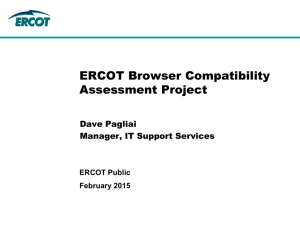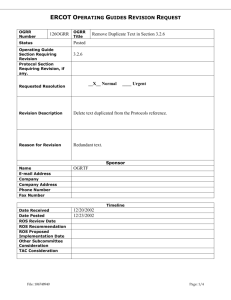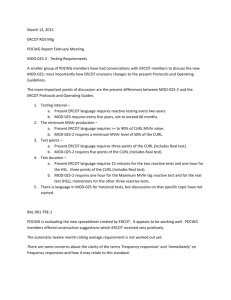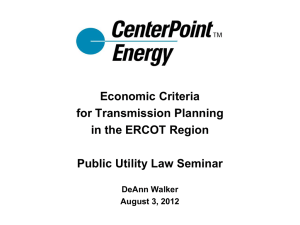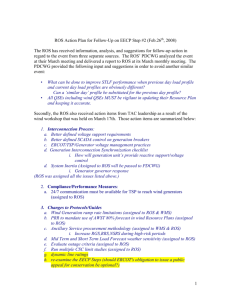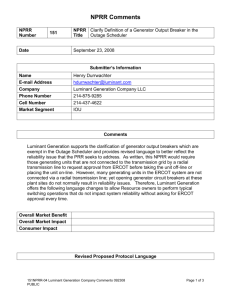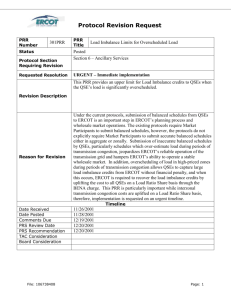SCE Performance Monitoring- Wind Only SCPS2
advertisement
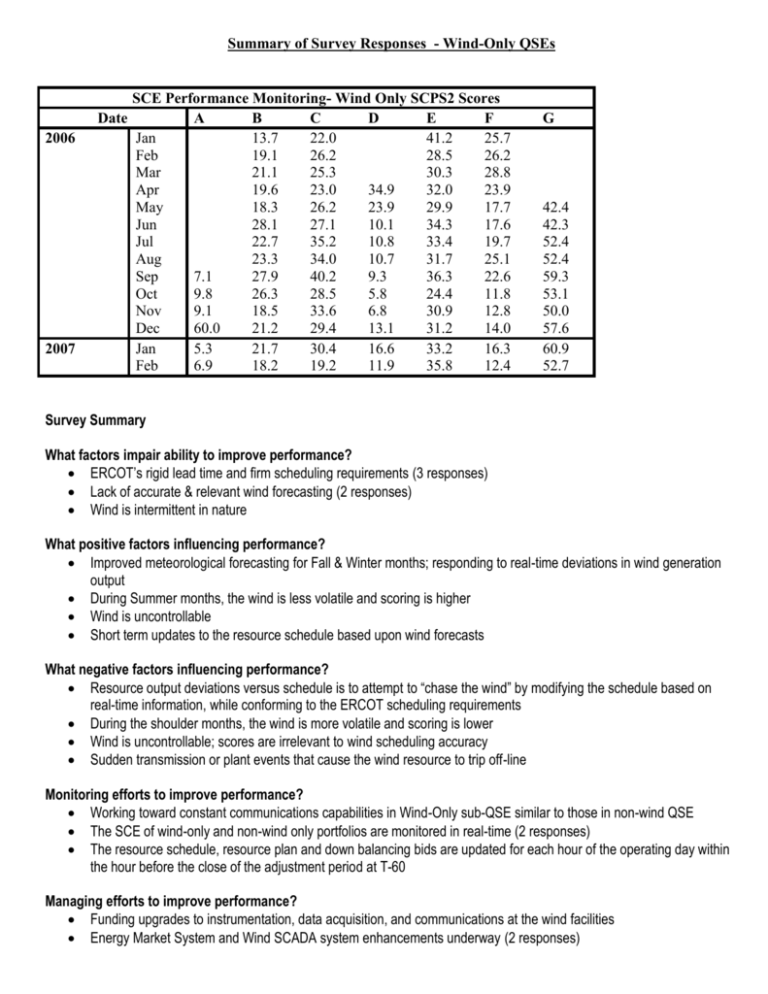
Summary of Survey Responses - Wind-Only QSEs 2006 2007 SCE Performance Monitoring- Wind Only SCPS2 Scores Date A B C D E F Jan 13.7 22.0 41.2 25.7 Feb 19.1 26.2 28.5 26.2 Mar 21.1 25.3 30.3 28.8 Apr 19.6 23.0 34.9 32.0 23.9 May 18.3 26.2 23.9 29.9 17.7 Jun 28.1 27.1 10.1 34.3 17.6 Jul 22.7 35.2 10.8 33.4 19.7 Aug 23.3 34.0 10.7 31.7 25.1 Sep 7.1 27.9 40.2 9.3 36.3 22.6 Oct 9.8 26.3 28.5 5.8 24.4 11.8 Nov 9.1 18.5 33.6 6.8 30.9 12.8 Dec 60.0 21.2 29.4 13.1 31.2 14.0 Jan 5.3 21.7 30.4 16.6 33.2 16.3 Feb 6.9 18.2 19.2 11.9 35.8 12.4 G 42.4 42.3 52.4 52.4 59.3 53.1 50.0 57.6 60.9 52.7 Survey Summary What factors impair ability to improve performance? ERCOT’s rigid lead time and firm scheduling requirements (3 responses) Lack of accurate & relevant wind forecasting (2 responses) Wind is intermittent in nature What positive factors influencing performance? Improved meteorological forecasting for Fall & Winter months; responding to real-time deviations in wind generation output During Summer months, the wind is less volatile and scoring is higher Wind is uncontrollable Short term updates to the resource schedule based upon wind forecasts What negative factors influencing performance? Resource output deviations versus schedule is to attempt to “chase the wind” by modifying the schedule based on real-time information, while conforming to the ERCOT scheduling requirements During the shoulder months, the wind is more volatile and scoring is lower Wind is uncontrollable; scores are irrelevant to wind scheduling accuracy Sudden transmission or plant events that cause the wind resource to trip off-line Monitoring efforts to improve performance? Working toward constant communications capabilities in Wind-Only sub-QSE similar to those in non-wind QSE The SCE of wind-only and non-wind only portfolios are monitored in real-time (2 responses) The resource schedule, resource plan and down balancing bids are updated for each hour of the operating day within the hour before the close of the adjustment period at T-60 Managing efforts to improve performance? Funding upgrades to instrumentation, data acquisition, and communications at the wind facilities Energy Market System and Wind SCADA system enhancements underway (2 responses) Procedure is in place to modify its wind generation schedules automatically for the actual wind energy production during the adjustment period Schedules are updated as close to real-time as the ERCOT Protocols and systems will allow What suggestions do you have to improve performance? Would support, through the stakeholder process, discussions involving protocol revisions to improve frequency control and overall scheduling performance of wind-only portfolios Encourage ERCOT to consider revisions to the scheduling and resource plan lead times to allow for more accurate QSE scheduling of volatile wind resources (2 responses) Would encourage ERCOT to research and analyze other RTO markets for their wind generation scheduling and balancing procedures in order to determine “best practices” Frequency control might be improved if ERCOT used real-time telemetry data from wind units as best forecast for upcoming schedules and resource plans Overall scheduling performance might be improved if the tolerance for SCE for wind-only portfolios was similar to the Uninstructed Resource Change tolerance (50%) Suggest ERCOT use a wind generation forecasting model to correlate wind, temperature and humidity forecasts with actual MW production for use in its forecasting & operations planning (2 responses) QSE’s could update the balance schedules as often as an hour before the operating hour. Resource plans can be updated near real-time

